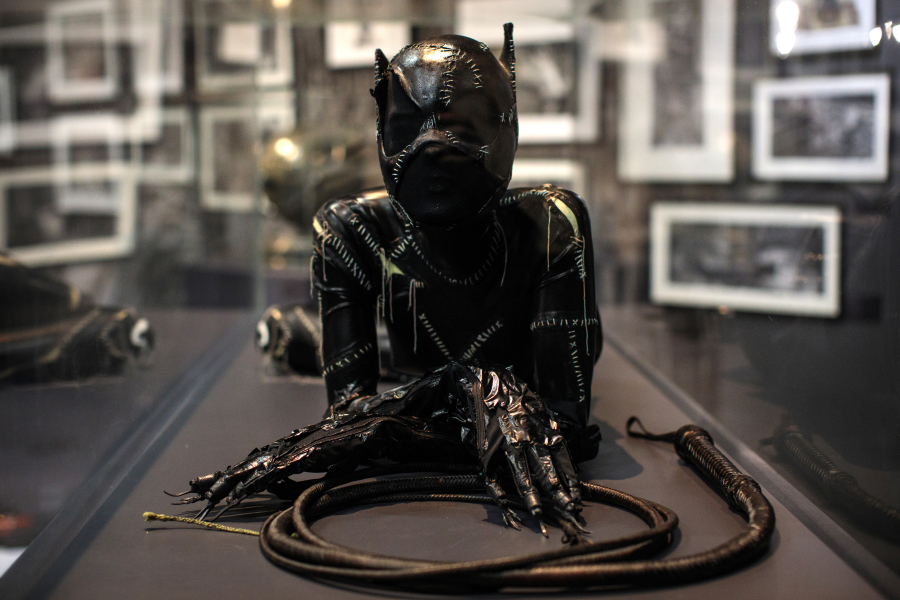Funny how a movie star — a real one, the kind with a face you can get lost in — can take over a film. I thought it might be fun to revisit, for this column, Tim Burton’s “Batman Returns,” that agreeable 1992 mashup of gothic darkness and comic book goofiness. And then I rewatched it, and all things became clear: I was going to write, instead, about Michelle Pfeiffer.
Not that I don’t recommend “Batman Returns”; it’s good, stylish fun, punctuated by Danny DeVito’s Penguin squawks and wrapped in Danny Elfman’s deliciously slithery score. But Pfeiffer, as Selina Kyle/Catwoman, doesn’t just steal the movie — she owns it, moves into it, redecorates it and presides over an Architectural Digest photo shoot. It’s one of those performances that sears itself into your memory. Pfeiffer was, at the time, already a two-time Oscar nominee (for “The Fabulous Baker Boys” and “Dangerous Liaisons”), but we’d never seen her in anything like this before.
One of the great comic book villains, Catwoman first turns up in the film as meek secretary Selina, nervously pouring coffee and trying not to go cross-eyed staring around the blond curl on her forehead. There’s rage in this woman, but it’s deeply hidden; it sneaks up on us, as early on the performance is quite comedic (watch how Selina, startled in the street, goes into a hilariously skittery little panic, like a cat). And then, still in the film’s early scenes, something terrible happens: Selina’s smoothly evil boss (a silver-fox Christopher Walken), worried about what she knows, shoves her from a high window. There she lies, a twisted, broken angel in the snow — until a herd of cats awaken her to her nightmare.
I’ll confess that from then on I watched “Batman Returns” just waiting for Pfeiffer to saunter in, wearing Selina’s retro-glam outfits (that sequined party dress, in which she dances with Michael Keaton’s Bruce Wayne, is a stunner) or Catwoman’s black-rubber suit. It’s a dual role, or more precisely a triple one: Selina pre-fall, Selina/Catwoman and Catwoman, with each identity fitting inside the others. The scene in which she arrives home after the fall — slurping milk from the carton, spraying graffiti on her pink walls, sewing the Catwoman costume with madness glinting in her eyes — shows a new personality emerging, taking over Selina, and Elfman’s music underscores that there’s tragedy here.



